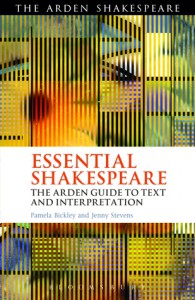Making Shakespeare Intelligible to Modern Audiences: "Essential Shakespeare" by Pamela Bickley, Jenny Stevens

Published 2013.
In Shakespeare's day, the pupils learnt Latin in order to study the writings of classical Rome. I take it that they studied 'Golden Age' Latin rather than the Medieval Latin of the Church? Or did they study both forms? How strange that today in many schools in England it is thought unnecessary or inappropriate to teach Shakespeare, or if his works are taught, the language is changed into a modern form, or videos are relied upon. Some educationists see it as more important to develop the 'creative skills' of the pupils than to bother to reveal to them where the language has come from and how elegantly it has been used by Shakespeare and other great writers. Thus they deprive their pupils of part of their heritage.
How interesting that Shakespeare´s first encounter with Poetry was through Roman Poets, such as Ovid and Virgil, rather than Chaucer; and that he first fell in love with Drama through Seneca and the like, rather than through mystery and morality English plays! In a way, I feel highly identified with such passion for reading in another language, for I consider myself so fortunate to be able to read Shakespeare´s plays in their original Elizabethan English. This takes us to the world of theatre, which in Elizabethan times was for all categories of people. Those who had enough education could enjoy allusions and references to classics, those who were not able to perceive classic charades enjoyed comic figures and really comprehensible situations (wife's infidelity, comic arguments, etc. I think that is what made the difference: Elizabethan theatre was a place where people from different social layers could find something adequate to their requests. The French theatre at the Molière's time (about 50 years later and, certainly, in different social and historical circumstances) was less "democratic".
You you're into Shakespeare of an academic bent, read on.
 3
3



